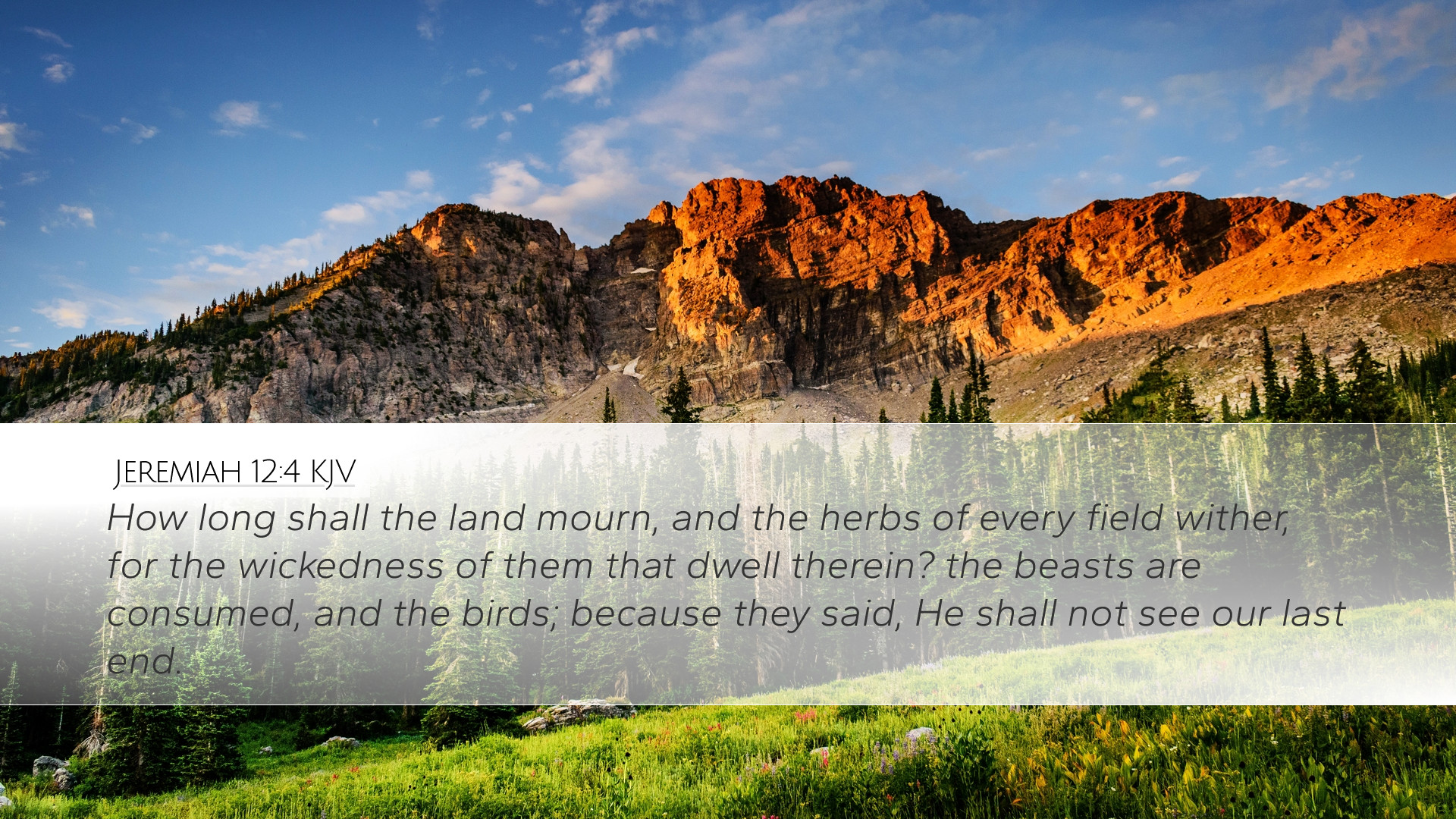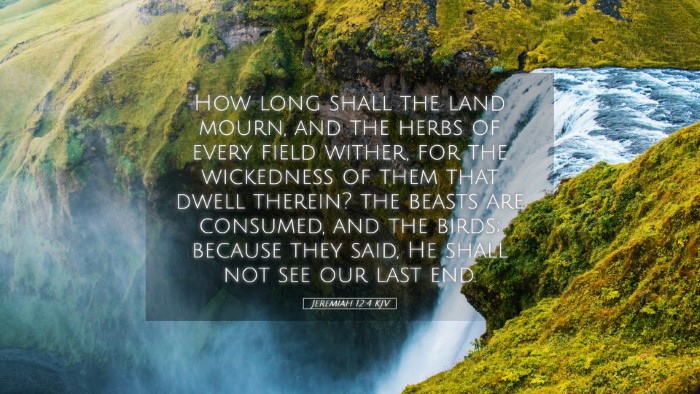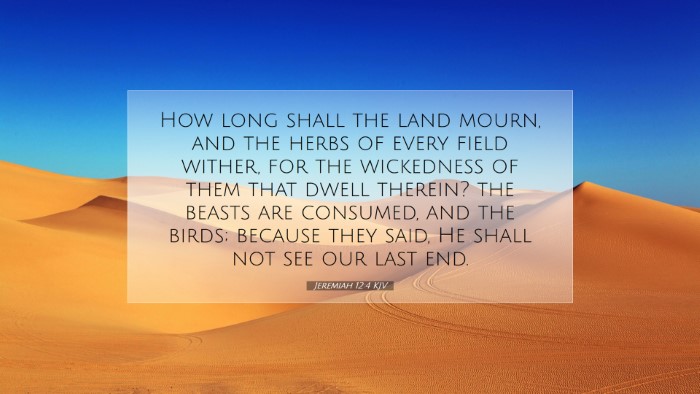Commentary on Jeremiah 12:4
Verse: "How long shall the land mourn, and the herbs of every field wither, for the wickedness of them that dwell therein? The beasts are consumed, and the birds; because they said, He shall not see our last end." (Jeremiah 12:4)
Introduction
This verse captures a poignant cry from the prophet Jeremiah as he reflects on the desolation of the land of Judah due to prevailing wickedness. It serves as a cornerstone for understanding the broader themes of judgement, divine justice, and the consequences of sin, as articulated in the book of Jeremiah. The sorrowful lamentation here underscores the intrinsic connection between the moral condition of a nation and the physical state of its land.
Exegesis of Jeremiah 12:4
The question posed by Jeremiah is a profound inquiry into the state of his nation. He articulates the mourning of the land and its flora due to 'the wickedness of them that dwell therein.' Here, we can draw insights from notable commentaries.
-
Matthew Henry:
Henry asserts that this verse evokes a direct correlation between human sin and environmental decay. He emphasizes that the earth itself bears witness to the moral failures of its inhabitants and reflects the divine displeasure regarding their actions. He further elaborates that the lament of the land symbolizes God's judgment, which brings forth not just spiritual strife but also tangible suffering within creation.
-
Albert Barnes:
Barnes notes that the mourning of the land illustrates the consequences of sin on a cosmic scale. He interprets the withering herbs as a metaphor for the spiritual desolation that leads to physical calamity. Barnes connects the fate of the beasts and birds with the larger narrative of Israel's unfaithfulness, suggesting that the created order is affected when humanity chooses a path contrary to God’s commandments.
-
Adam Clarke:
Clarke explores the implications of the phrase 'He shall not see our last end,’ emphasizing that it reflects a pervasive attitude of rebellion against God. He discusses how this denial leads to moral blindness and a refusal to acknowledge the effects of sin. Clarke argues that this rejection contributes not only to personal downfall but also to communal tragedy, asserting that a society indifferent to divine governance invites disaster upon itself.
Thematic Reflections
This verse, rich with theological implications, prompts a myriad of reflections essential for pastors, students, theologians, and scholars.
The Mourning of Creation
Creation itself participates in the lament for human sin. As Romans 8:22 states, 'For we know that the whole creation groans and suffers the pains of childbirth together until now.’ This echoes Jeremiah’s observation that the land mourns due to wickedness. This theme underscores the interconnectedness of the moral state of humanity and the physical environment, aligning with the biblical worldview that God’s creation is inherently good, yet marred by human transgression.
Judgment and Restoration
The lamentation in Jeremiah can also be seen as a precursor to the hope of restoration. Those who reflect on the text through a theological lens recognize that while judgment is certain due to unrepentant wickedness, the prophetic literature often also points toward a coming restoration and renewal. This duality is critical in understanding God's nature — merciful yet just. Pastors may find this a useful framework for preaching about the need for repentance, emphasizing that mourning today does not have to lead to despair if there is a turn toward God.
Call to Accountability
Jeremiah’s complaint serves as a severe reminder of the accountability that rests on those who would call themselves the people of God. There is a prophetic duty to acknowledge not only personal sin but also societal evil that affects collective witness. The call here is to be vigilant, as wickedness has repercussions that extend beyond the individual, impacting the entire community and creation itself.
This accountability can drive a practical theology in which believers reflect critically on their roles in society, advocate for justice, and care for creation as an integral part of their faith.
Conclusion
Jeremiah 12:4 encapsulates a powerful message that resonates through time, linking the condition of creation and the moral choices of humanity. Through the insights gathered from public domain commentaries, we see the layered complexities of sin, judgment, and the hope of redemption. Scholars and leaders in the faith community are called not only to understand this verse in its historical context but also to apply its truths within their own communities today, echoing its call to awareness, accountability, and ultimately, to hope in the Lord’s restoration.


